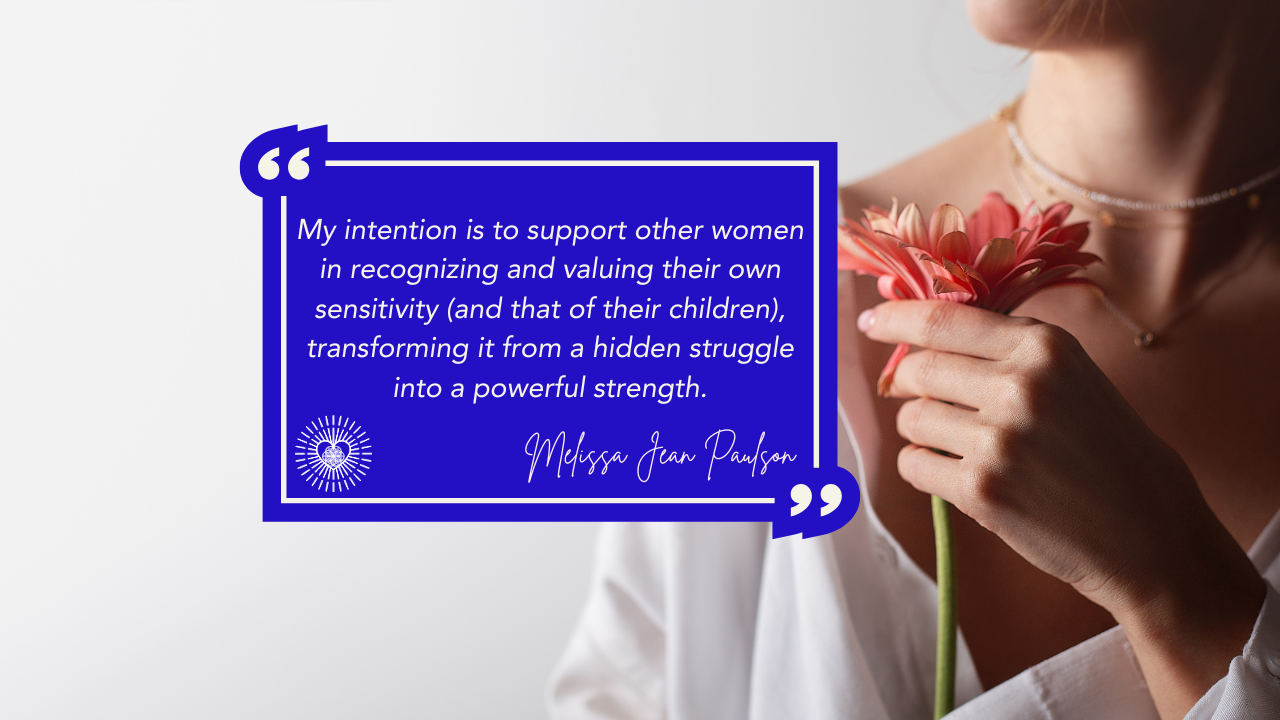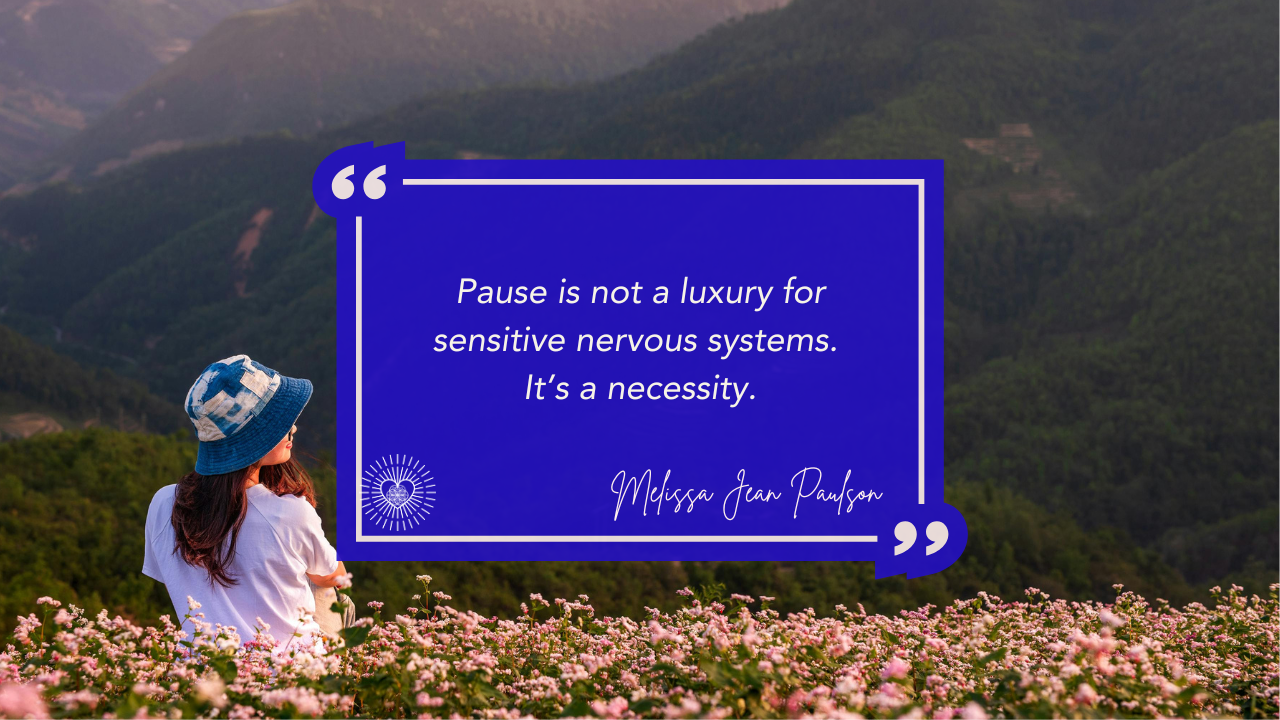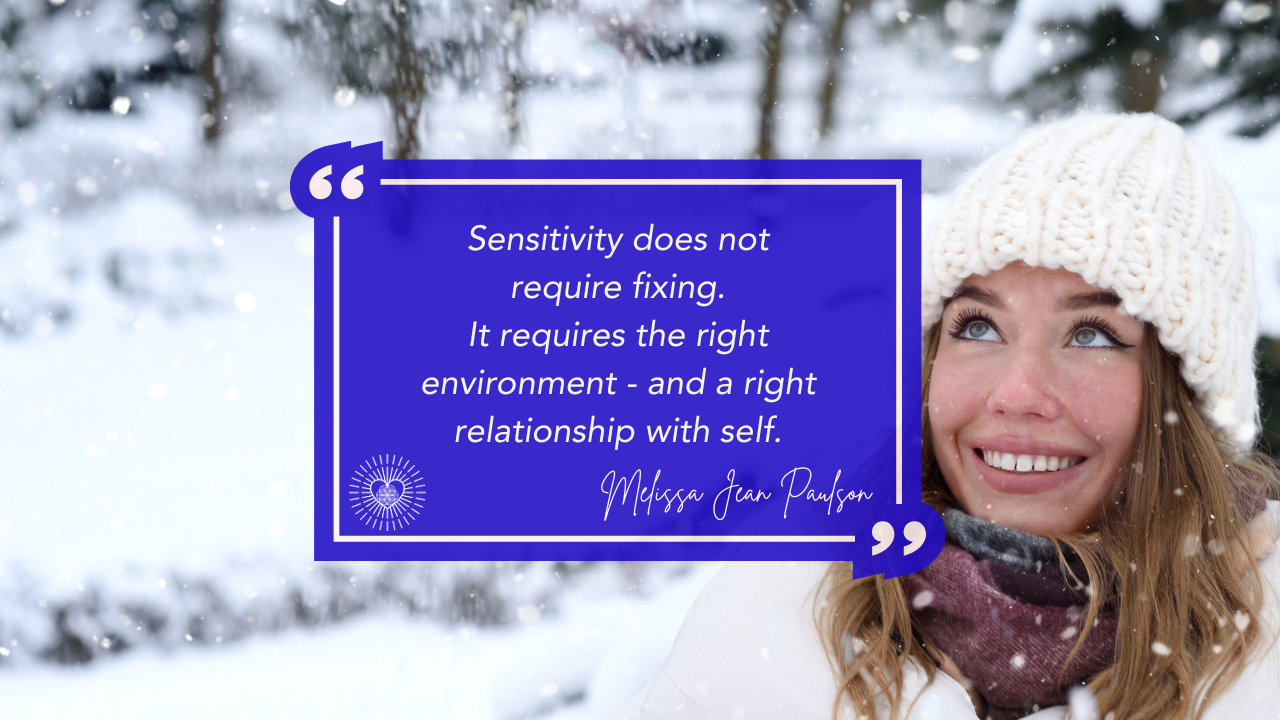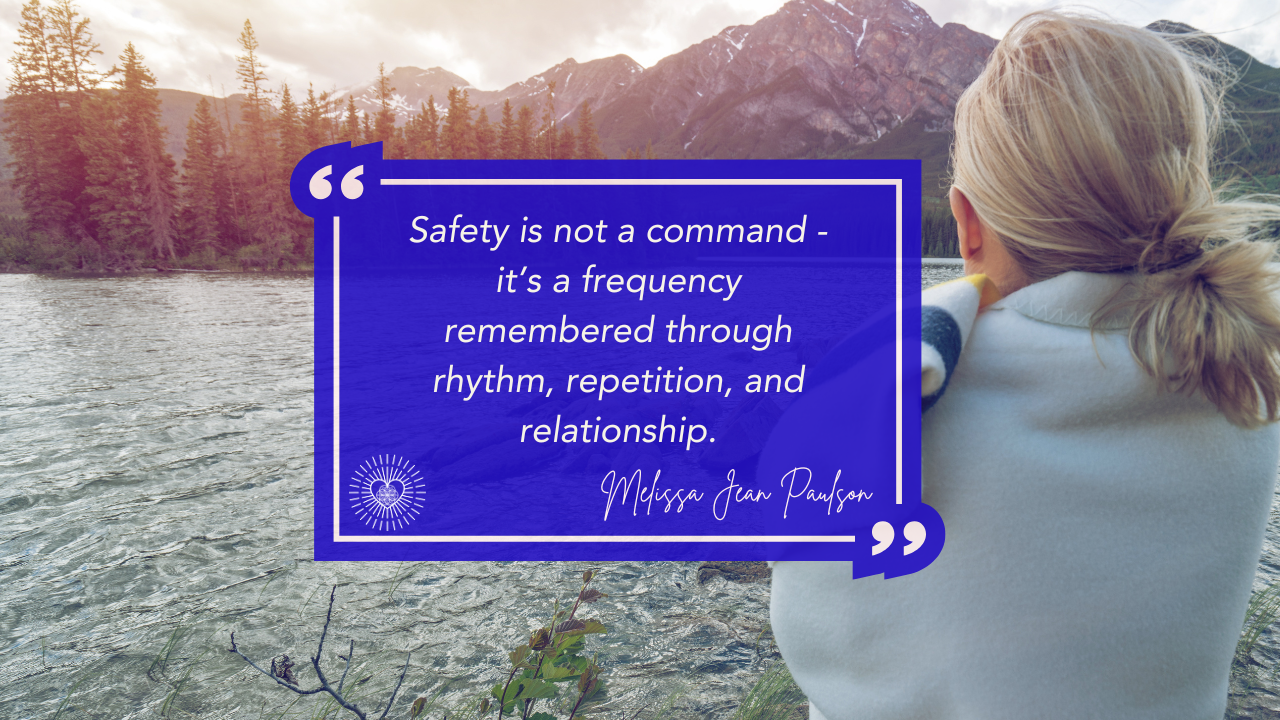The Hidden Struggles: Women Unaware of Their High Sensitivity Trait
Aug 01, 2024
In today's fast-paced world, the complexities of having the high sensitivity trait often go unnoticed - especially among women who may not even realize they possess it. Known as Sensory Processing Sensitivity (SPS), this trait is an innate survival strategy marked by heightened sensitivity to stimuli, deep cognitive processing, and a rich inner life. While it can be a strength, it also presents unique challenges - particularly for women who haven’t yet learned how to work with, rather than against, their sensitivity.
Discovering Sensory Processing Sensitivity
Sensory processing sensitivity was first identified in the 1990s with the research by depth psychologist Dr. Elaine Aron, who introduced the concept in her groundbreaking book, "The Highly Sensitive Person" . Dr. Aron’s research revealed that this trait is present in about 15-20% of the population and is equally distributed between men and women. Intriguingly, SPS is not unique to humans; it has been observed in over 100 other species, suggesting that it is an evolutionary survival strategy. This trait enables individuals to process information more deeply and respond to subtle environmental cues, which can be advantageous in certain contexts and problematic in others. It is important to note that this trait is found equally among males and females and of those who have the trait approximately 70% are introverts while 30% are extraverts.
Overwhelm in Everyday Situations
Women with SPS often experience an overwhelming response to everyday stimuli, remember that this trait is a naturally occurring trait that’s often overlooked or misunderstood and is different than having a Sensory Processing Disorder. Each woman is unique so responses to different stimuli vary but bright lights, loud noises, crowded places, high social interaction, and even strong smells can be distressing for some. For those unaware of their sensitivity, these reactions can be confusing and frustrating. They might feel easily exhausted in busy environments or struggle with concentration due to sensory overload. Without understanding their SPS, they may blame themselves for being "too sensitive" or feel inadequate compared to others who seem unaffected by the same stimuli. This is a key area that I address when working with woman to better understand and embrace what it means to be highly sensitive and how to tend to the unique needs that accompany this trait.
Emotional Intensity and Misunderstanding
Emotional reactivity is another significant aspect of SPS. Women with this trait tend to feel emotions more deeply and for longer periods. This can lead to intense emotional highs and lows that are often misunderstood by others and often times suppressed if misunderstood. Friends, family, and colleagues might perceive them as overreacting or being overly emotional. Without awareness of their SPS, these women might internalize such feedback, leading to self-doubt and a diminished sense of self-worth.
Difficulty in Setting Boundaries
Women with SPS may find it challenging to set boundaries due to their empathic nature and deep concern for others' feelings. Some women may take on more than they can handle in the name of love and concern, leading to burnout and stress. The inability to recognize their limits and communicate their needs effectively can result in a constant state of overwhelm. This is further compounded by societal expectations that often pressure women to be nurturing and self-sacrificing. As a highly sensitive woman myself this is another key area of focus to raise awareness and learn to prioritize the self-care that is truly required.
Misdiagnosis and Misunderstanding
Unrecognized SPS can sometimes lead to misdiagnosis of other conditions, such as anxiety or depression. While these conditions can co-occur with SPS, the underlying sensitivity trait might go unnoticed, resulting in treatments that do not fully address the individual's needs. Women might receive advice or therapy that overlooks the importance of understanding the effects and management of sensory input and emotional intensity, leading to ongoing struggles. Working with a professional who also has SPS and is knowledgable with the intricacies of navigating life with the trait is encouraged.
Believing Untruths About Themselves
Due to a lack of awareness about SPS, women with this trait often believe untruths about themselves. They might see their sensitivity as a flaw or weakness rather than an innate and valuable survival strategy. Common misconceptions include viewing themselves as overly emotional, too fragile, or socially inept. These negative self-perceptions can significantly impact their mental health and self-esteem, making it difficult for them to embrace their sensitivity as a strength. We all experience negative self-talk but with the depth of processing that highly sensitive women have, reframing the past and establishing healthier habits is essential.
Social Isolation and Loneliness
Due to their heightened sensitivity, women with SPS might find social interactions draining and seek solitude to recharge. However, without understanding their need for alone time, they might feel guilty or believe they are antisocial. This can lead to social isolation and loneliness, further exacerbating their emotional struggles. The lack of awareness and validation from others can make it difficult for them to form meaningful connections. Many women question themselves if they do not have a large pool of friendships instead of recognizing that the right friendships for them are typically with those who enjoy deeper conversations and connections, where love and acceptance flow.
Strategies for Managing Sensory Processing Sensitivity
For women who suspect they might have SPS or are seeking ways to manage their sensitivity, the following strategies can be helpful:
1. Educate Yourself: Learning about SPS can provide valuable insights and help in understanding your experiences. As previously mentioned Dr. Elaine Aron has written several books and there are also a few documentaries out as well.
2. Mindfulness and Breathwork: Practices like mindfulness and breathwork can help in managing sensory overload and emotional reactivity. These techniques promote relaxation and enhance self-awareness. Slowing down and bringing yourself into the moment is key.
3. Set Boundaries: Learning to say no and setting clear boundaries is crucial. Communicate your needs to others and prioritize self-care. Let go of any guilt and know that you deserve to make the decisions that best honors your unique makeup.
4. Create a Sensory-Friendly Environment: Make adjustments in your living and working spaces to reduce sensory overload. Soft lighting, quiet areas, space to breathe after meetings, and calming scents can make a significant difference.
5. Seek Support: Connect with others who have or understand SPS, whether through support groups or therapy. Sharing experiences and receiving validation can be incredibly comforting.
Embracing Sensitivity as a Strength
Understanding and embracing sensory processing sensitivity can transform it from a hidden struggle into a recognized strength. Women with SPS often possess deep empathy, creativity, and intuition. The depth of caring and concern can take on a life of its own once a highly sensitive woman becomes a mom. It is not uncommon for women to lose their sense of self once motherhood takes the helm. By acknowledging their sensitivity and making adjustments to support their well-being, they can lead healthier, happier, more fulfilling and empowered lives. This is my mission, to guide and compassionately support women, especially moms, who are awakening their sensitive self and the power within to rise above stress. Working with a practitioner who shares this trait and understands its emotional, energetic, and biological layers can be deeply validating.
Personal Insights: My Journey as a Highly Sensitive Person
As a highly sensitive woman and mother, I understand the unique challenges and rewards that come with this trait. Feeling things deeply and having a complex inner life has been both a gift and a journey of self-discovery. Through my personal and professional experiences, I have learned the importance of self-awareness, establishing healthy parameters to stay true to myself, and embracing one's sensitivity. My intention is to support other women in recognizing and valuing their own sensitivity (and that of their children), transforming it from a hidden struggle into a powerful strength.
References:
Aron, E. N. (1996). The Highly Sensitive Person: How to Thrive When the World Overwhelms You. Broadway Books.
Greven, C. U., Lionetti, F., Booth, C., Aron, E. N., Fox, E., Schendan, H. E., Pluess, M., Bruining, H., Acevedo, B., & Bijttebier, P. (2019). Sensory Processing Sensitivity in the context of Environmental Sensitivity: A critical review and development of research agenda. Neuroscience & Biobehavioral Reviews, 98, 287-305.
This blog is part of The Re-Aligned Journey™ - A Spiral of Healing and Remembrance for sensitive women returning to right relationship with mind, body, and soul.
Join the Rise & Realign Lunar Letter
A weekly reflection of moon, mind, and body - guiding sensitive women to rise, reclaim, and remember.
Your privacy is sacred. We will never share or sell your information.






